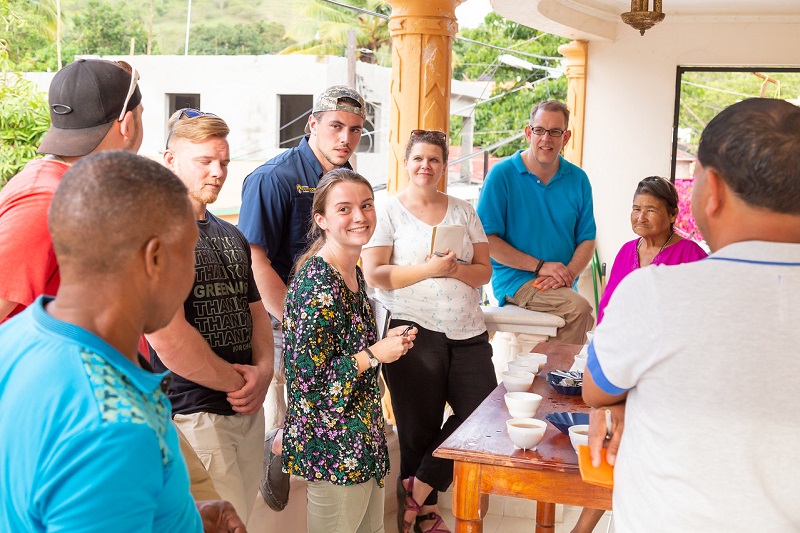
Download Image: Web
By Brittney Gross, International Development Fellow 2018-2019
Upon deciding to participate in Warrior Coffee’s International Development Program, I had already discovered my passion for coffee thanks to the several trips I had previously taken to the Dominican Republic with the program and my time working at Alabaster Coffee (the roaster of Warrior Coffee). However, it was not until I fully completed my fellowship a year later that I was certain coffee, specifically coffee origin, would be my future.
The year was a journey I started with no expectations, yet had all the ambition I needed to succeed in a year filled with challenges from cultural barriers, to machismo, and the basic hurdles of living in a developing country. I spent my days with the community of Peralta listening, observing, and eventually becoming a member of the 20,000-person town. As it would anyone, it saddens me to be away from the people I spent so much time with, and who took such good care of me. I am grateful to have met such a wonderful community that is working and fighting diligently to ensure the health, safety, and success of their families, friends, and neighbors. Coffee production is not as lucrative as it has been in the past, and when coffee is not being harvested, life can be dismal, but the sense of community is what keeps them going.
Aside from admiring how strong and united of a community Peralta is, I of course spent much of my time working with coffee producers learning all I could about coffee production. I learned most about their biggest hardships, not only from listening to them, but also living through them alongside those struggles. Their biggest challenge is accessibility to farms. Being that there is only one road up the coffee growing mountain, there is not much access to farms that lay far beyond it, leaving producers to make several trips bringing coffee and equipment to their land via mule. My favorite experience was actually accessing some of these out-of-reach farms with a few members of the El Naranjito Association. While it was enjoyable, the tolls of having to do that every day are innumerable. Coffee processing equipment is also in disrepair as the lack of profitability of coffee has never been quite suffice to allow for upgrades. This of course, limits the amount of high quality coffee any given farm can produce. It was through these sorts of conversations that I learned most about washed coffee processing.
Knowing that producers know so much more than I ever will about coffee production, I tended to focus most of my casual coffee lessons to international specialty coffee standards. With my one year of experience as a barista at Alabaster Coffee, their trainings tailored to the standards of the Specialty Coffee Association, and my research experience from Lycoming College, I was able to gather all the information I needed. From processing standards, to the supply chain, export, hand sorting, and green coffee buyer expectations, I always found myself having an opportunity to introduce a producer to bits of new information in exchange for the once in a life time experiences they gave me without hesitation.
Although I am back in the United States now, I still proudly represent Warrior Coffee on behalf of the hard working families I had the privilege of meeting. I am now working as a production assistant and barista at Alabaster Coffee, but I dream of getting back to origin and one day sourcing coffee. I still plan on being involved in the program, and look forward to seeing the community that is so proud to produce the coffee I hope you are drinking today.